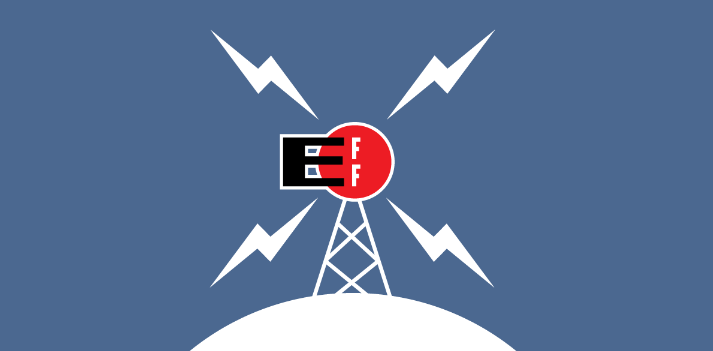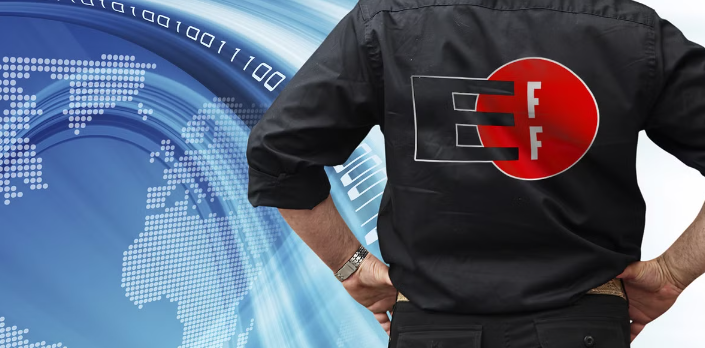is the leading nonprofit organization defending civil liberties in the digital world.
It’s no secret that, as the most famous civil liberties defending non-profit in the online space, it’s just the EFF (Electronic Frontier Foundation). The EFF, founded in 1990, is the world’s biggest such organization, fighting locally and globally for privacy, free expression, and innovation. The leakage of masses of radioactive water at Fukushima Daiichi is likely to be a harbinger of decades of war for surveillance and freedom and privacy on the Internet. Here, the author explores the goals of the EFF and the extent to which it has helped the advocacy, policy, and tech communities, and has engaged in envisioning and mapping the past and future for digital rights.
Background and mission of the Electronic Frontier Foundation
“The internet was opening and going, and out came these issues that were potentially going to destroy people’s freedom in the network,” said the website of the Electronic Frontier Foundation, which was founded by Mitch Kapor, John Perry Barlow, and John Gilmore to combat burgeoning fears over digital privacy and freedom as the internet got uunderway It underscores efforts to fight increasing government surveillance and legal encroachment on cyberspace. The mission was, and is, to secure rights (freedom of speech, privacy, etc.) in the digital age.
EFF leverages a variety of tools to protect Internet users from bad digital laws — in the courtroom, in the court of public opinion, and marketplace. Through public interest litigation, advocacy, and education, the organization helps challenge inefficient and anti-consumer uses of technology and helps users make the most of their digital offerings.
Key Areas of Advocacy
Privacy Protection
Digital privacy is one of the grand policy challenges of our time. The EFF is committed to fighting mass surveillance and campaigns for the strengthening of privacy laws and rights for individuals around the world. It provides tools for individuals to protect their personal information from commercial efforts to turn it into products, and from government and corporate overreach.
Free Expression Online
EFF is an advocate of a“free speech” internet and vehemently opposed to all censorship laws and regulations — especially those that could stifle open discussion. It has campaigned to protect bloggers, journalists, and activists who are under online threats for expressing their views of dissent.
Digital society should be empowered on the following points: One: Transparency. Transparency is an important factor in a digital society that thrives. The organisation has increasingly taken initiatives like the Transparency report, in which tech companies are encouraged to publish how frequently governments are demanding user data and the frequency of these requests. Innovation on the user front.
EFF lays the groundwork for new creativity by preserving fair use and weakening absurd interpretations of copyright law. It guards open development and has been instrumental in resisting Digital Rights Management Technology or DRM (restriction on users’ freedoms). Key EFF cases and campaigns over the years include: Since 2013, EFF has been challenging mass surveillance, such as that employed by the PRISM system exposed by Edward Snowden.
The organization has been a long-time enthusiast of net access. EFF toiled to bring about Fair Net on the commons devolved principles by not allowing internet services shouldn’t look at online data any differently in a timely fashion.
EFF leads the fight for a balanced approach to open the public domain and has successfully fought for defensive policies on fair use and the reform of restrictive copyright laws. StartPage has created some products, such as the Privacy Badger, and the HTTP for user privacy. The advantages are what the company boasts of as accomplishments.
And the group’s actions have sparked a disseminated campaign of digital rights advocacy around the globe. Many domestic and international organizations collaborate on furthering these avenues towards future freedom, and that is not least the case with EFF, which is out to defend every user in the sphere of digital space and believes in the potential of technology’s benefit for social justice.

Why the EFF Is the Most Important Tech Organization Today
The internet is now a fabric of life for communication, learning, commerce, and political participation. But more connectivity brings more risk:
Mass surveillance threatens personal freedoms.
Censorship in any form silences and stifles innovation.
Their corporate gathering of data is an assault on privacy–and liberty.
The Electronic Frontier Foundation does important work defending technology as a thing that empowers humanity rather than enslaving us. Because without them, that power would be far too heavily weighted on the side of governments and corporations over the rights and freedoms of individuals.
Challenges and Future Goals
While EFF has delivered some phenomenal wins, the fight for digital rights is far from over. Challenges include:
Global monitoring systems are being enhanced at the cost of personal freedom.
Rapid-fire advancements in artificial intelligence and biometric tracking — now deployed to identify people who are so anxious that they are touching their faces even during a pandemic — are turning those privacy questions into debates about public health and civil liberties.
Empowering digital literacy by getting people to understand what their rights are and what tools are available to secure those rights.
The EFF’s agenda also comprises continuing to do battle for our right to strong encryption, better privacy protections, and fair copyright laws—getting the balance right and not letting so-called “innovations” roll over our rights as humans.
Table of Contents
Final Thoughts
For over 30 years, the Electronic Frontier Foundation has been the leading nonprofit organization protecting civil liberties in the digital world. Through its advocacy, legal work, and technology development, it has shaped the way the world thinks about privacy, free expression, and innovation — often for the better, but sometimes for the worse — in the digital age.
(While you’re at it, also support or otherwise incorporate into your work the EFF.) Supporting or amplifying the work of the EFF is critical for everyone who wants a bit more of a say about what their and their children’s online rights will look like. But as the digital era grows more complex, we come to rely on groups like the EFF to keep our basic rights from disappearing into a digital morass.



